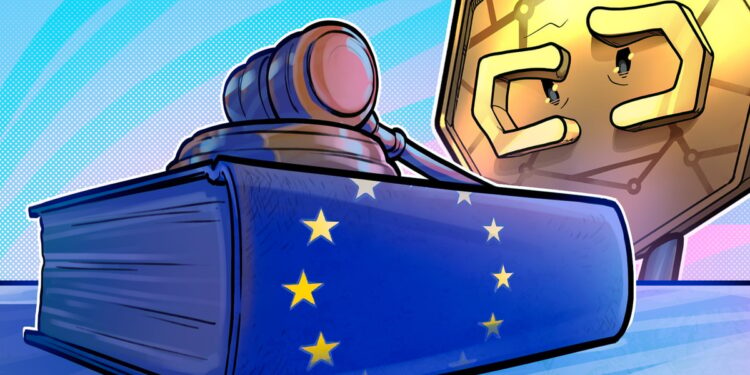As EU lawmakers close to a call on the “Chat Management” regulation, privateness consultants warn it might break public belief in digital communication and push customers towards Web3 platforms.
As European lawmakers close to a call on the controversial “Chat Management” laws, privateness consultants warn it might break public belief in digital communication and push customers toward Web3 platforms.
On the middle of the talk is the EU’s proposed Regulation to Stop and Fight Youngster Sexual Abuse, which might require platforms to scan personal messages for unlawful content material earlier than they’re encrypted. Critics say this successfully creates a backdoor into encrypted programs, contradicting the EU’s personal commitments to privateness.
“Giving an inherently corruptible entity almost limitless visibility into the personal lives of people is incompatible with an sincere worth assertion of digital privateness,” Hans Rempel, co-founder and CEO of Diode, informed Cointelegraph. He referred to as the proposal a harmful overreach.
Elisenda Fabrega, normal counsel at Brickken, famous that the regulation seems “tough to justify below the prevailing jurisprudence of the Courtroom of Justice of the European Union.” She pointed to Articles 7 and eight of the EU Constitution of Elementary Rights, which assure the confidentiality of communications and safety of non-public knowledge.
“Consumer-side scanning would allow the monitoring of content material on consumer units previous to transmission, together with in instances the place there isn’t a indication of illegal exercise,” she defined.
Associated: US Treasury’s DeFi ID plan is ‘like putting cameras in every living room’
EU regulation units harmful precedent
Specialists say the regulation units a harmful precedent from a authorized and technological standpoint. “There are not any ensures,” Rempel added, when requested if the instruments may very well be misused. “Over 10% of all knowledge breaches happen in authorities programs,” he warned.
Fabrega raised issues over the broader impression such surveillance would have on public belief. “Encryption isn’t solely a technical characteristic, it’s a promise to customers that their personal communications will stay confidential,” she stated.
The erosion of belief in conventional messaging platforms might immediate customers to discover decentralized Web3 options, platforms constructed to guard consumer knowledge by means of encryption by design.
“Web3’s privateness battle cry is ‘Not your keys, not your knowledge,’” Rempel stated. “That is true self-custody for knowledge,” he added, noting that the end-user maintains sovereignty over their info from “cradle to grave.”
Fabrega echoed the sentiment, stating that “privacy-conscious customers will more and more discover decentralized Web3 options” if Chat Management is handed. She warned that the shift might “fragment the European digital market” and weaken the EU’s potential to form worldwide norms on privateness.
Associated: EU proposal to scan all private messages gains momentum
The ball is in Germany’s courtroom
Germany, which holds the pivotal vote, has yet to take a final stance. Whereas 15 EU nations at present assist the proposal, they fall wanting the 65% inhabitants threshold required for passage. If Germany votes in favor, the regulation will seemingly move; if it abstains or opposes, the laws is anticipated to fail.
“We imagine it to be low,” Rempel stated of the probability of passage. “But it surely gained’t be the final time that there’s an try to subvert elementary human rights within the title of security.”
Journal: Astrology could make you a better crypto trader: It has been foretold



















